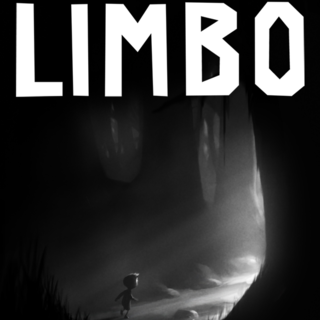Unique, immersive, taxing, brutal and very very good.
The protagonist of Limbo is a young boy whose name and purpose we do not know. The game opens with him waking up in the middle of a forest. How he came to be here is unclear; what is clear is that he is far from safe. Having little in the way of a plot, the only apparent objective is to overcome the various obstacles which block your way forward. Is this a bad thing? Maybe. Explanations are something you will not find here so it depends on whether you need them or not.
Like Braid, Limbo's graphical style is what sets it apart the most from other games in the same genre. The entire world is rendered in austere monochrome - the majority of its features appearing as silhouettes. Though the game lacks colour, it has no such dearth of detail or character. Its bleakness complements its harsh and hazardous locales and focus is effectively used to distinguish between foreground, background and the plane you are traversing. The inhabitants of Limbo are animated to perfection (particularly the giant spiders) and the messy aftermath of its various traps are suitably visceral and shocking.
There are many many brutal ways to meet your end here and death is something you will frequently experience. The gameplay's general nature is rooted in trial and error. This may sound annoying but, due to regular checkpoints, you will rarely have to repeat a task which has already been completed. Though there are absolutely no loading screens or chapter breaks, the game is very roughly divided into three acts with different styles of puzzles in each. There is a disparity here; by the end, Limbo will feel somewhat different to how it began. The starting areas are arguably the most emotionally involving due to the fact that your demise is often met at the hands of another entity. Later locations are more focused on mechanical puzzles rather than simply avoiding deathtraps. It's difficult to say much more without spoiling things. Mentioning specific traps or sequences would only lessen the impact of experiencing them for yourself.
An experience is an apt noun for this game; it is definitely one that should be played in the dark with the sound up. Limbo's trump card is its immersive atmosphere and playing it in the company of jabbering people, noisy vacuum cleaners or a yapping Jack Russell terrier will ruin the effect entirely. Flies buzzing, ripsaws roaring, bones crunching - you will want to hear it all. The soundtrack is, for the most part, subtle and ambient yet it is capable of sharpening to a razor's edge when necessary. In both sound and aesthetics, Limbo is a resounding example of less being more.
Whether or not you'll enjoy this game is dependent on a few things. Aside from the occasional heart attack, it is slow paced - particularly towards the end. It is also short, taking roughly three or four hours to complete. Finally, it's pretty fair to say that a large part of the formula here is the presentation. As such, if Limbo's sombre style is something you are not partial to, the overall experience will likely pass you right by. Either way, it's difficult to deny that Limbo is unique and, whatever your personal tastes may be, games possessing this quality are almost always worth trying

